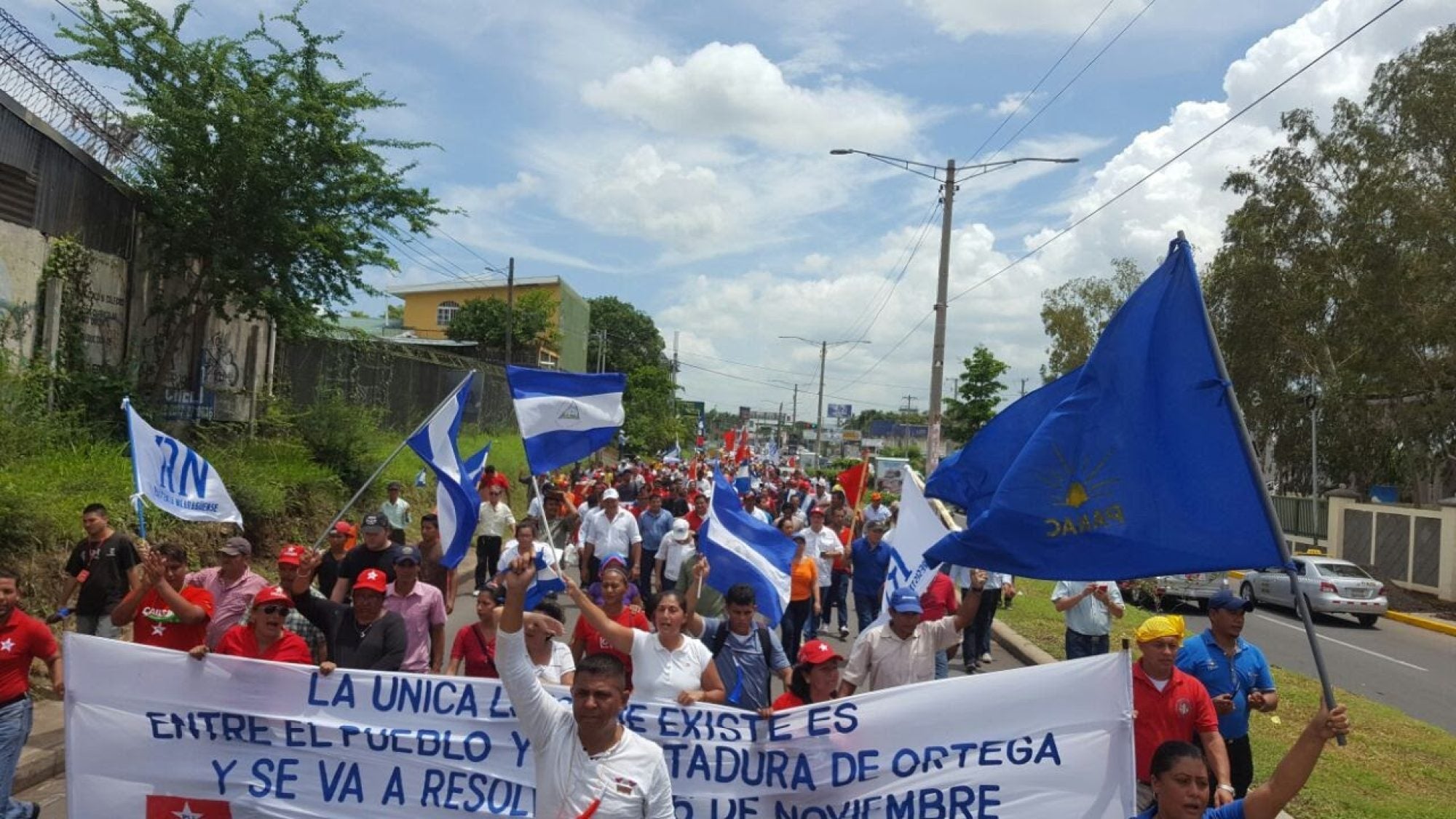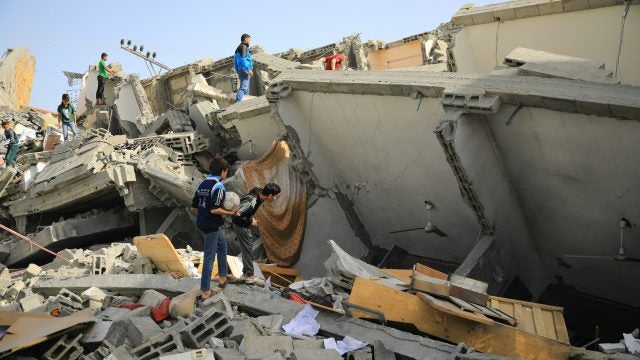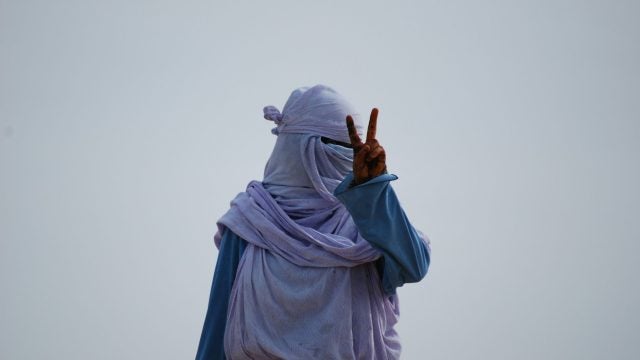
Title: Nicaragua on the Brink: Protests, Elections, and Mass Atrocity
Since the end of 2021, the Nicaraguan government has made a series of sweeping attacks on universities—some of the last pockets of vocal government opposition in Nicaragua. Critics have argued that these actions are a startling escalation from previous attempts to repress the opposition. We argue that these steps are instead a predictable development in a series of increasingly repressive tactics that President Daniel Ortega has taken to increase his power and weaken government critics.
Since December of 2021, the Nicaraguan government has made a series of sweeping attacks on universities, which are often the seat of anti-government protest. Actions have included cutting public funding, taking a direct role in the governing of universities, and shuttering universities . In February of 2022, the Sandinista National Liberation Front (FSLN) controlled National Assembly canceled the operating licenses of five universities–only two months after closing the Universidad Hispanoamericana for related to financial and administrative noncompliance. The targeted universities also included the Universidad Politécnica de Nicaragua, which was the center of widespread anti-government protests in 2018. The universities claim that they fulfilled all financial requirements and are being targeted because they supported students during the 2018 protests. Most recently, the Critics argue that these actions are a startling escalation, and amount to an attempted restructuring of Nicaraguan society. We argue that these steps are instead a predictable development in a series of increasingly repressive tactics that President Daniel Ortega has taken to increase his power and weaken government critics.
How did we get here?
The government of Nicaragua amped up their repressive tactics significantly in response to protests that began in 2018. On April 18, 2018, of university students took to the streets of Nicaragua. Protests were sparked by proposed social security reforms that would require greater contributions from workers while simultaneously providing fewer benefits. The 2018 social movement posed a significantly larger threat to Ortega compared to past protests: coming from university students that had historically supported Ortega, these protests were larger, recurring, and explicitly demanded the removal of the current government.
Pro-government militia and security forces heavily repressed the 2018 protests leaving upwards of 300 people dead, with dozens killed in the first week, making this the most lethal conflict since the final days of Nicaragua’s revolution. In the beginning, Ortega combined the repression with accommodation, canceling the proposed social security reforms within the first week. However, when accommodations did not end protests, the government increasingly escalated its human rights violations to the point that America’s director at Amnesty International Erika Guevara Rosas, in response to a report published by the Interdisciplinary Group of Independent Experts (GIEI-Nicaragua), said that the government of President Ortega had committed crimes against humanity.
The 2021 general elections were an opportunity to de-escalate tensions and allow citizens to express their grievances by replacing Ortega. Instead, Ortega either arrested or disqualified numerous opposition candidates, allowing him to claim victory and a fifth term in office. The election was widely criticized as rigged, with over 200 acts of violence or coercion documented alongside a pattern severely limiting the press and creating a general climate of fear amongst journalists. US President Biden called the election “a pantomime election that was neither free nor fair” , with Amnesty International noting that those in Nicaragua who supported the results came from a National Assembly and non-independent judiciary both loyal to Ortega.
Mass Atrocities in Nicaragua
The CIRIGHTS dataset, which measures human rights, places the Nicaraguan government as one of the most repressive in the world beginning in 2018. Human rights violations were primarily targeted at students and educational institutions, NGOs, unions, the media, women, the LGBTQ+ community, and the indigenous population especially when they were critical of the government.
The government has increasingly curbed the right to criticize the government, engaging in widespread violations of: free speech, electoral independence, freedom of assembly and association, religious freedom, and collective labor rights. These violations included revoking the legal status of human rights NGOs and imposing significant bureaucratic obstacles to their operations, forcing many to operate in exile. They also significantly restricted academic freedom by pressuring academics to censor themselves and forcing K-12 students to participate in pro-government demonstrations during school hours.
The state also ramped up violence targeted at government critics. In the ten years prior to 2018, Nicaragua was in the 35th percentile of repression globally. However, in 2018 its score dropped to 0, indicating widespread violations of political imprisonment, torture, extrajudicial killings, and disappearances. Nicaragua had not used disappearances as a repressive tactic in 25 years but adopted the tactic against political opposition from 2018 onwards. According to the brutality based atrocity measure, Nicaragua has committed high and medium level mass atrocities against its population in every year between 2018 and 2021.
Considering these developments, the recent takeover of universities needs to be understood as a predictable next step in a multiyear campaign to silence government critics. These violations were aimed at domestic organizations that have the political power to hold leaders accountable: the media, academia, human rights NGOs, and labor unions. By targeting these organizations alongside political opposition, Ortega has undermined the ability of domestic forces to restrain government violence and mass atrocities.
International Reaction and Responses
International pressure has had some success in restraining Nicaraguan repression, and previous research shows naming and shaming can be effective. The United Nations, the Organization of American States, Amnesty International and other intergovernmental organizations began a naming and shaming campaign against Nicaragua in 2018. However, the COVID-19 pandemic shifted attention away from mass atrocities in Nicaragua. Many leaders used the pandemic as a justification for grabbing power and repressing those critical of the government. COVID significantly reduced the cost of repression and the risk of international censure between 2019 and 2021. As such, international efforts to curb human rights violations in Nicaragua have only recently been effective . The United States placed sanctions on Nicaragua during Ortega’s inauguration on January 10, 2022; and on March 31, 2022 the United Nations Human Rights Council passed a resolution to form an investigation into human rights abuses committed in Nicaragua since 2018. On February 17 this year, the Inter-American Commission on Human Rights (IACHR) and the Regional Office of the United Nations High Commissioner for Human Rights (OHCHR) for Central America has officially condemned the worsening human rights situation in Nicaragua
However, the Ortega government has taken steps to reduce the ability of the international community to punish human rights violations. Nicaragua formally began the process of exiting the Organization of American States (OAS) in 2021 after the OAS denounced the elections as fraudulent, and has refused to allow members of the OHCHR and IAHRC to monitor human rights in the country. Similarly, Nicaragua in recent years has changed is foreign policy stance to be more friendly with China and Russia, indicating a potential shift away from organizations and states which prioritize human rights. Academic work on contentious politics has found that when social movements significantly raise the costs of concession and disruption against states, higher repression is to be expected. Ortega’s level of repression coincides with what we would expect from leaders facing this level of threat to their survival. Unless the international community can significantly increase the costs of repression, Ortega is unlikely to change course. In February 2023, the Ortega government sent more than 200 political prisoners to the United States in a move that the Biden Administration calls “a constructive step towards addressing human rights abuses” and an opportunity to improve US-Nicaraguan dialogue. Amnesty International has been less optimistic, alleging that Ortega is subjecting political prisoners to forced exile, revoking their citizenship, labeling them traitors, and “stepping up his policy of terror and repression to annihilate any dissent.”
Worse to come?
The combination of escalating repression alongside an international shift away from human rights bodes poorly for the international community’s ability to curb human rights violations in Nicaragua in the short term. Protests have continued in Nicaragua as the people continue to call for Ortega’s removal and the list of grievances has significantly expanded from denouncing cuts to social welfare to include calls for Ortega’s removal, accountability for mass atrocities, and significant political and economic reform. The cost to the Ortega government for accommodating these demands today is much larger than in 2018. Politicide, or the mass-murder of political or ideological opponents, looks increasingly likely and has been shown to occur under situations that look a lot like Nicaragua right now: mass unrest calling for the removal of Ortega that is sustained and undeterred by state repression. Similarly, given the violent response to peaceful and violent protests alike, the Nicaraguan people may escalate to greater levels of violence to achieve their goals such as terrorism or civil war. The conditions that led to this point were predictable and the gap in pressure internationally as a result of the COVID-19 pandemic have given leaders increasing justification for targeting government dissidents under the pretext of fighting the pandemic.
Under the Responsibility to Protest (R2P) principle the international community has pledged to prevent mass atrocities and hold perpetrators accountable for past violations. The international community has a variety of tools to accomplish this in Nicaragua: naming and shaming campaigns, human rights prosecutions, granting asylum to political dissidents, targeted sanctions, activating labor rights clauses in trade agreements, among others. It remains to be seen whether the international community will pay the costs to hold the Ortega government accountable and prevent further atrocities, or simply give another statement of “never again” after things escalate beyond repair in the future.
. . .
Recommended Articles

This piece examines the UK government’s proscription of Palestine Action under the Terrorism Act, situating it within a broader trend of shrinking space for public dissent. It argues that the…

This article analyses the distortions of the International Humanitarian Law (IHL) notion of proportionality in the context of the Israel-Gaza war. It discusses Israel’s attempts to reinterpret proportionality to justify…

The escalating women’s rights crisis in Afghanistan demonstrates a gap in international legal protections of the rights of women and girls. The international community should fill this gap by making…